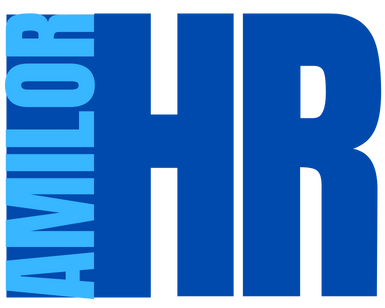The Human Resources (HR) function has undergone a profound transformation in recent years. Having evolved from a simple administrative role to a strategic player within companies, HR today faces new challenges in adapting to the changing world of work. This evolution is accompanied by major changes in the practices, skills required and tools used by professionals in the sector.
The strategic transformation of the HR function
The evolution of the HR function is characterized by a shift from a purely administrative role to a strategic position within the company. This change is due to the need to respond to new challenges that are crucial to organizations:
- Talent attraction and retention
- Workplace well-being
- Work-life balance
- Promoting diversity
- Developing organizational agility
HR professionals have become business partners in their own right, contributing their expertise to support the company’s global strategy. They act as advisors to managers and play an active role in decisions affecting the organization’s human capital.
This evolution implies the development of new HR skills, notably in :
- Communication
- HR marketing
- Change management
- Situational intelligence
The profile of HR professionals is therefore evolving towards more strategic, agile and open-minded personalities, capable of adapting quickly to changes in the world of work.
Digitization and computerization of HR processes
The digital revolution is having a major impact on the HR function, with the increasing digitization of processes and the adoption of new technological tools. This digital transformation can be seen in :
- the implementation of high-performance HR Information Systems (HRIS)
- The use of digital tools for recruitment, training and talent management
- The use of HR data and indicators to manage the function
This computerizationoptimizes administrative tasks and frees up time for higher value-added activities. As a result, HR professionals can concentrate more on supporting employees and the company’s strategic development.
The use of HR data is becoming a major challenge for :
- Improve decision-making
- Anticipate skills needs
- Measure the impact of HR policies
- Optimize personnel management processes
This evolution towards a data-driven HR function requires the development of analytical skills among HR professionals.

New organizational structures and talent management
The evolution of the HR function brings with it new ways of organizing work that need to be managed, including:
- telecommuting
- Hybrid working
- Cross-functional project teams
These transformations require HR practices to be adapted to maintain employee commitment and team cohesion in these new work contexts.
At the same time, talent and skills management is becoming increasingly important. Gestion Prévisionnelle des Emplois et des Compétences (GPEC) is becoming a strategic tool for :
- Anticipate the company’s future needs
- Develop key skills
- Encourage internal mobility
- Attract and retain talent
This evolution is accompanied by a decentralization of the HR function, with an increased sharing of HR responsibilities with line managers. The latter are increasingly involved in day-to-day team management and skills development.
| HR aspect | Evolution |
|---|---|
| Role | From administrative to strategic |
| Tools | Digitization and data-driven |
| Organization | Decentralization and flexibility |
| Core competencies | Agility, communication, analytics |
Trends and challenges for the future of the HR function
The evolution of the HR function brings with it new challenges for HR professionals. Major trends include :
- the growing importance of employer branding and Corporate Social Responsibility (CSR)
- the need for greater agility in the face of rapid changes in the job market
- Adapting to employees’ new expectations in terms of well-being and work/life balance.
These trends are reflected in the evolution of the HR job market. In particular, we note :
- A concentration of HR job vacancies in the Paris region (51% of vacancies)
- A search for more experienced profiles, but also an openness to beginners
- An increase in the number of non-permanent contracts among HR vacancies
- A strong presence of small structures among HR recruiters
To meet these challenges, HR professionals need to develop new skills and adopt acontinuous learning posture. Agility, innovation and openness to change are becoming essential qualities for success in this constantly evolving field.
In short, the evolution of the HR function reflects the profound changes taking place in the world of work. HR professionals are called upon to play a central role in accompanying these changes, becoming true strategic partners within organizations. Their ability to adapt, innovate and anticipate future trends will be decisive in meeting the challenges that lie ahead, and contributing fully to the performance and well-being of companies and their employees.

